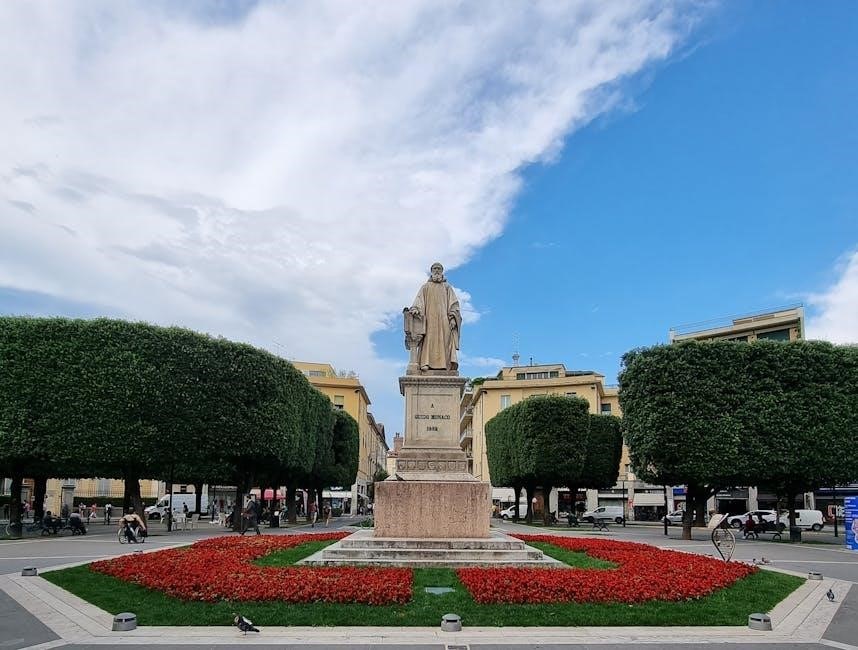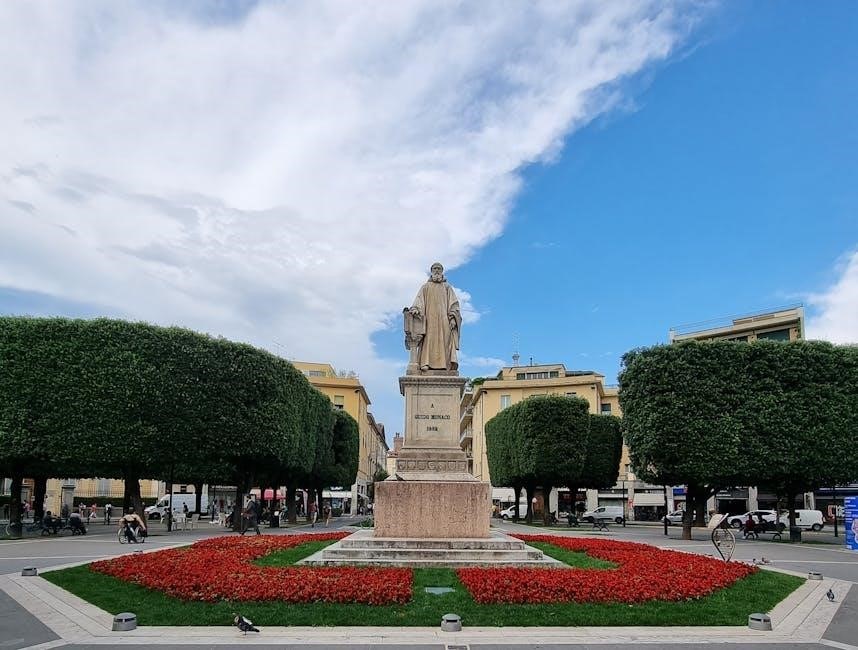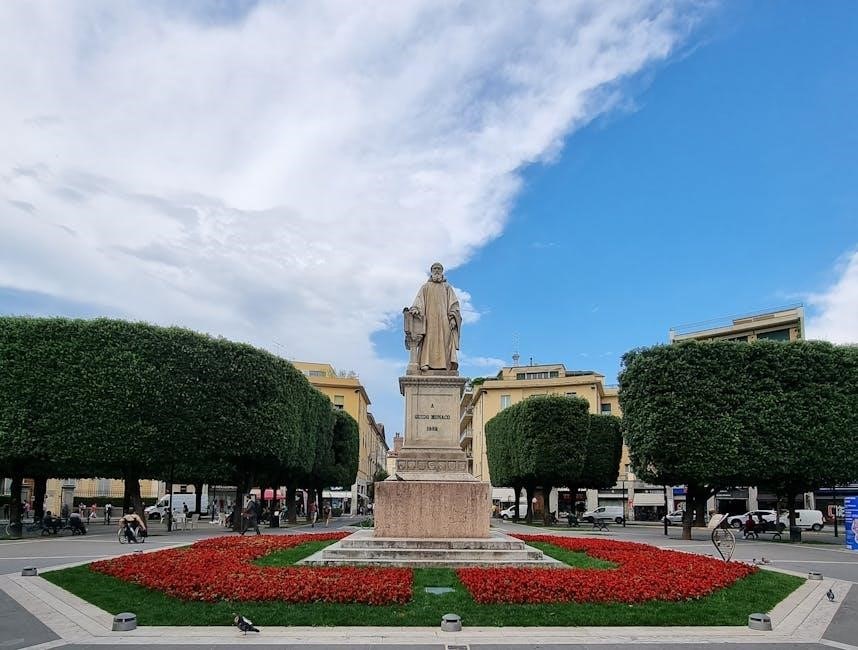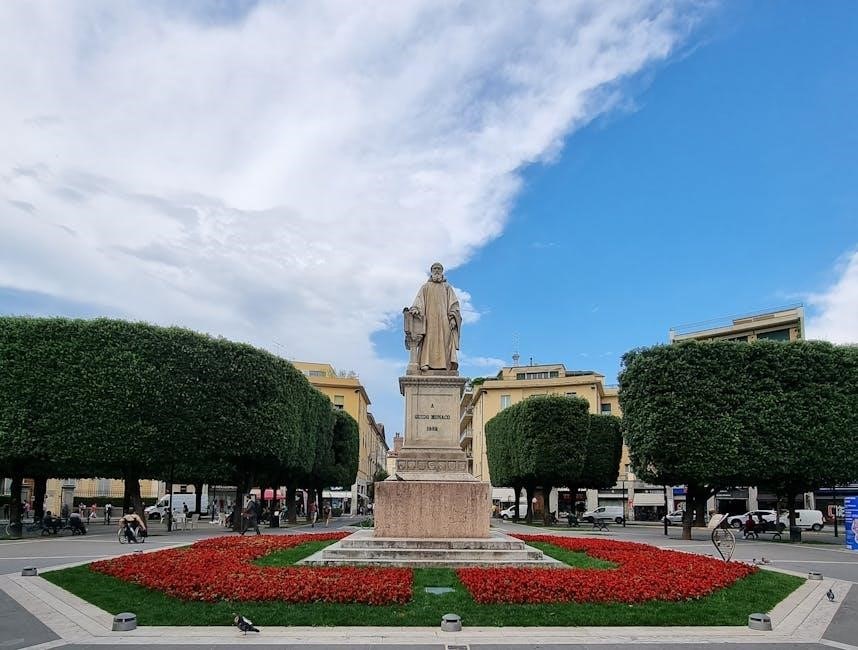Guido Gezelle was a Flemish priest and poet, known for his lyric poetry and influence on European literature, with a unique style and themes, using to express his views․
Early Life and Career
Guido Gezelle was born on May 1, 1830, in Bruges, Belgium, to a family of modest means․ He was ordained as a priest in 1854 and began his career as a teacher at Roeselare, where he remained until 1860․ During this time, he worked to inspire his students with his religious, poetic, and Flemish-nationalist idealism․ Gezelle’s early life and career were marked by a strong sense of devotion to his faith and his community․ He was deeply committed to his work as a priest and a teacher, and he used his position to promote the values of education and social justice; Gezelle’s experiences during this period had a profound impact on his later life and work, shaping his views on literature, language, and culture; His early career laid the foundation for his future successes as a poet and a writer․ Gezelle’s life was one of dedication and service․
Gezelle’s Literary Contributions
Guido Gezelle made significant contributions to literature, particularly in the field of poetry․ He was a master of 19th-century European lyric poetry, and his works are characterized by their beauty and depth․ Gezelle’s poetry often explored themes of nature, religion, and the human condition, and he was known for his use of language and imagery․ His literary contributions had a profound impact on the development of Flemish literature, and he is still widely read and studied today․ Gezelle’s writing was influenced by his experiences as a priest and a teacher, and he used his poetry to express his thoughts and feelings on a wide range of subjects․ He was a prolific writer, and his works include numerous poems, articles, and essays․ Gezelle’s literary contributions are a testament to his skill and craftsmanship as a writer, and he remains one of the most important figures in Flemish literary history․ His poetry continues to inspire and influence writers to this day․

Guido Gezelle’s Work and Legacy
Guido Gezelle’s work and legacy are widely recognized, with his poetry and writings still studied and admired, using
language
to express his unique views and style always․
Poetic Style and Themes
Guido Gezelle’s poetic style is characterized by its lyricism and depth, with a focus on nature and the human experience․ His use of language is expressive and evocative, conveying a sense of wonder and awe․ Gezelle’s poetry explores themes of love, spirituality, and the search for meaning, with a unique blend of mysticism and realism․ His writing is infused with a sense of passion and intensity, making his poetry both personal and universal․ Through his work, Gezelle conveys a profound appreciation for the beauty of the world and the human condition, using imagery and symbolism to convey his message․ With his innovative style and exploration of themes, Gezelle has left a lasting impact on the literary world, inspiring generations of readers and writers․ His poetry remains a testament to his skill and artistry, continuing to captivate audiences with its beauty and emotion․
Influence on Flemish Literature
Guido Gezelle’s influence on Flemish literature is profound and far-reaching, with his work contributing to the development of a distinct Flemish literary identity․ His poetry and writings helped to promote the use of the Flemish language and culture, paving the way for future generations of Flemish writers; Gezelle’s innovative style and themes have inspired many Flemish authors, who have followed in his footsteps to explore the complexities of Flemish identity and experience․ Through his work, Gezelle has helped to establish Flemish literature as a significant and vibrant part of European literary heritage․ His influence can be seen in the work of many notable Flemish writers, who have been inspired by his unique voice and perspective․ As a result, Gezelle’s legacy continues to shape and inform Flemish literature, ensuring his place as one of the most important figures in Flemish literary history․ His impact is still felt today, with his work remaining a vital part of Flemish cultural heritage․

Guido Gezelle’s Personal Life
Guido Gezelle lived a simple life as a priest, with
family
and relationships playing a significant role in his life and work always․
Birthplace and Upbringing
Guido Gezelle was born in Bruges, a city in the Flemish region of Belgium, on May 1, 1830․ His birthplace played a significant role in shaping his life and work, with the city’s rich history and culture influencing his writing․ Gezelle’s upbringing was marked by a strong sense of faith and tradition, with his family being devout Catholics․ This had a profound impact on his later life as a priest and poet, with his work often reflecting his spiritual beliefs․ Gezelle’s childhood was also marked by a love of nature and the outdoors, with the city’s surrounding countryside providing inspiration for his later writing․ The combination of his birthplace, upbringing, and faith would go on to shape Gezelle’s unique voice and perspective as a poet, with his work continuing to be celebrated to this day․ His life and work remain an important part of Flemish literary heritage․
Family and Relationships
Guido Gezelle’s family played a significant role in his life, with his parents and siblings influencing his early years․ His father was a gardener, and the family lived in a house in Bruges, where Gezelle was born․ Gezelle’s relationships with his family members were close, and he maintained a strong sense of loyalty and devotion to them throughout his life․ He also had a number of close friendships and relationships with other writers and intellectuals of his time, with whom he shared his ideas and passions․ Gezelle’s family and relationships were an important source of support and inspiration for him, and he often wrote about them in his poetry and other writings․ The love and care of his family and friends helped to shape Gezelle’s personality and worldview, and had a lasting impact on his life and work․ Gezelle’s daughter, Louise, also became a writer and poet in her own right․

Guido Gezelle’s Cultural Significance

Guido Gezelle’s work had a lasting impact on Flemish culture and literature, using
language
to promote national identity and pride, with his poetry and writings remaining popular today, influencing many authors and poets, and scholars․
Historical Context
Guido Gezelle lived during a time of significant cultural and linguistic change in Flanders, with the region experiencing a resurgence of interest in its native language and heritage․ The
19th century
was a period of great upheaval, with many Flemish people seeking to assert their national identity and promote their language and culture․ Gezelle’s work was influenced by this historical context, with his poetry and writings reflecting the
social and political
tensions of the time․ He was also influenced by the
literary movements
of the time, including the Romantic movement and the rise of nationalism․ Gezelle’s unique perspective and style were shaped by his experiences as a Flemish priest and poet, and his work continues to be studied and appreciated today for its insight into the historical context of 19th-century Flanders․ His legacy is a testament to the enduring power of language and culture․
Lasting Impact
Guido Gezelle’s work has had a lasting impact on Flemish literature and culture, with his poetry and writings continuing to be celebrated and studied today․ His unique style and themes have influenced generations of writers and poets, and his legacy can be seen in the many
literary awards
and festivals that bear his name․ Gezelle’s impact extends beyond the literary world, with his work also influencing the development of the Flemish language and identity․ His poetry and writings have been translated into many languages, introducing his work to a wider audience and cementing his reputation as one of the most important Flemish writers of the 19th century․ Through his work, Gezelle has left a lasting legacy that continues to inspire and educate people around the world, and his impact will be felt for generations to come, with his work remaining a vital part of Flemish cultural heritage․